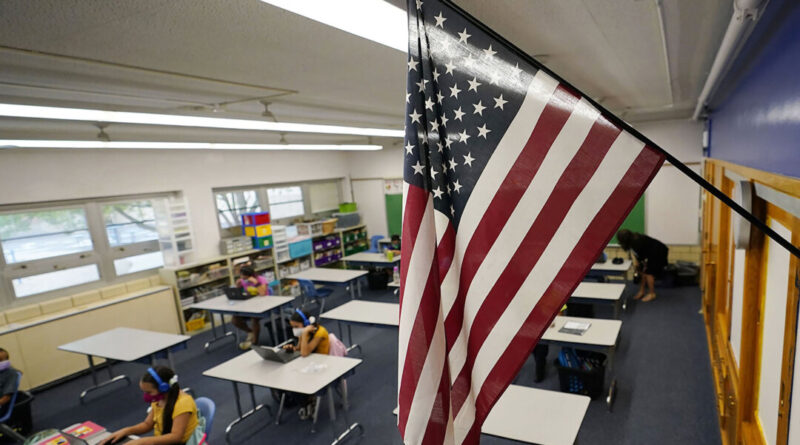Judge Refuses to Halt Policy Allowing Agents to Arrest Illegal Immigrants in Schools
The Denver Public Schools filed a lawsuit against the policy, arguing that it violated federal law.
A federal judge on March 7 decided not to grant a request to block a new immigration enforcement policy that allows agents to enter schools to apprehend undocumented immigrants.
“Defendants have presented no evidence that they examined relevant data, or any data at all. For instance, Defendants have not cited any evidence to substantiate their claim that criminals were hiding in schools,” the lawsuit asserted.
This, according to Denver officials, rendered the decision arbitrary and capricious, violating federal law.
A DHS spokesperson maintained that the administration was “protecting our schools, places of worship, and Americans who attend by preventing criminal aliens and gang members from exploiting these locations and seeking refuge there because these criminals knew law enforcement couldn’t go inside under the previous administration. The DHS directive equips law enforcement to perform their duties effectively.”
Since the implementation of the policy change, Denver school officials reported a decline in student attendance and multiple reports of ICE raids occurring near schools. Denver’s superintendent informed the court that students and parents had been detained during these raids, creating fear within the school community.
Under a previous policy, agents from Immigration and Customs Enforcement (a branch of DHS) made only two arrests within schools during emergency situations from October 1, 2018, to October 31, 2020, as stated in court documents. Additionally, 18 arrests occurred near schools.
They further asserted that the new policy does not substantially diverge from the earlier policy. While the previous 2021 policy indicated that “enforcement actions should not occur in or near designated protected locations,” agents were still permitted to conduct arrests in such areas, the officials pointed out. Schools remained classified as protected locations, and agents were still required to obtain authorization before entering these premises.
Judge Domenico remarked on Friday that it was uncertain how much of the fear related to potential enforcement actions in schools stemmed from the new regulations versus broader concerns regarding heightened immigration enforcement.
He highlighted the requirement for supervisory approval prior to entering sensitive locations and suggested that the anxieties surrounding the new regulations, along with the perception that previous rules offered security for schools, both appeared to be exaggerated.
The Associated Press contributed to this report.




